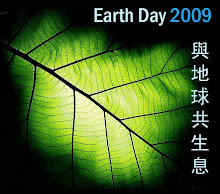I became worried when I saw this article:
Forest Plan Gets Ax at UN Climate Talks (Dec 19, 2009)
By Michael Casey, The Associated Press
COPENHAGEN -- A plan to protect the world's biologically rich tropical forests was shelved early Saturday after world leaders failed to agree on a binding deal to reduce greenhouse gas emissions. Delegates scrapped plans for a comprehensive climate agreement that would have included the deal to pay poor countries to protect their forests. The program is known as REDD for Reducing Emissions from Deforestation and Degradation.
''REDD gets punted along for another year,'' said Kevin Conrad, executive director of the Coalition of Rainforest Nations, which includes many of the 40 tropical countries that would take part in the program. ''It's depressing,'' he said. ''It means I've got to spend another year ... coming to meetings and talking about the same things.''
The burning or cutting of trees for logging and to clear land for plantations or cattle ranches is blamed for about 20 percent of global emissions. That's as much carbon dioxide as all the world's cars, trucks, trains, planes and ships combined. About 32 million acres (13 million hectares) of forests are cut down each year -- an area about the size of England or New York State -- and the emissions generated are comparable to those of China and the United States, according to the Eliasch Review. Deforestation for logging, cattle grazing and crops has made Indonesia and Brazil the world's third- and fourth-biggest emitters.
''The failure of the U.N. process to agree on a system to fund and regulate the protection of the world's forests means that business as usual logging and forest conversion will continue,'' said Stephen Leonard of the Australian Orangutan Project. ''No treaty means that forest destruction will continue unabated, forest dependent peoples rights will not be protected and endangered species will continue down the path to extinction.''
REDD would be financed either by wealthy nations or by a carbon-trading mechanism -- a system in which each country would have an emissions ceiling, allowing those who undershoot it to sell their emissions credits to over-polluters.
---
UPDATE 1: Karim says it is still on the final draft, so hopefully the program can still be created/effectively implemented.
UPDATE 2 (12/20/09): One paragraph regarding REDD-plus is included in the final Copenhagen Accord. Two other points on REDD were not included.
P.S. REDD-plus is what we call India's provision to pay countries for enhancing carbon stocks (by planting trees), in addition to preventing deforestation.

No comments:
Post a Comment